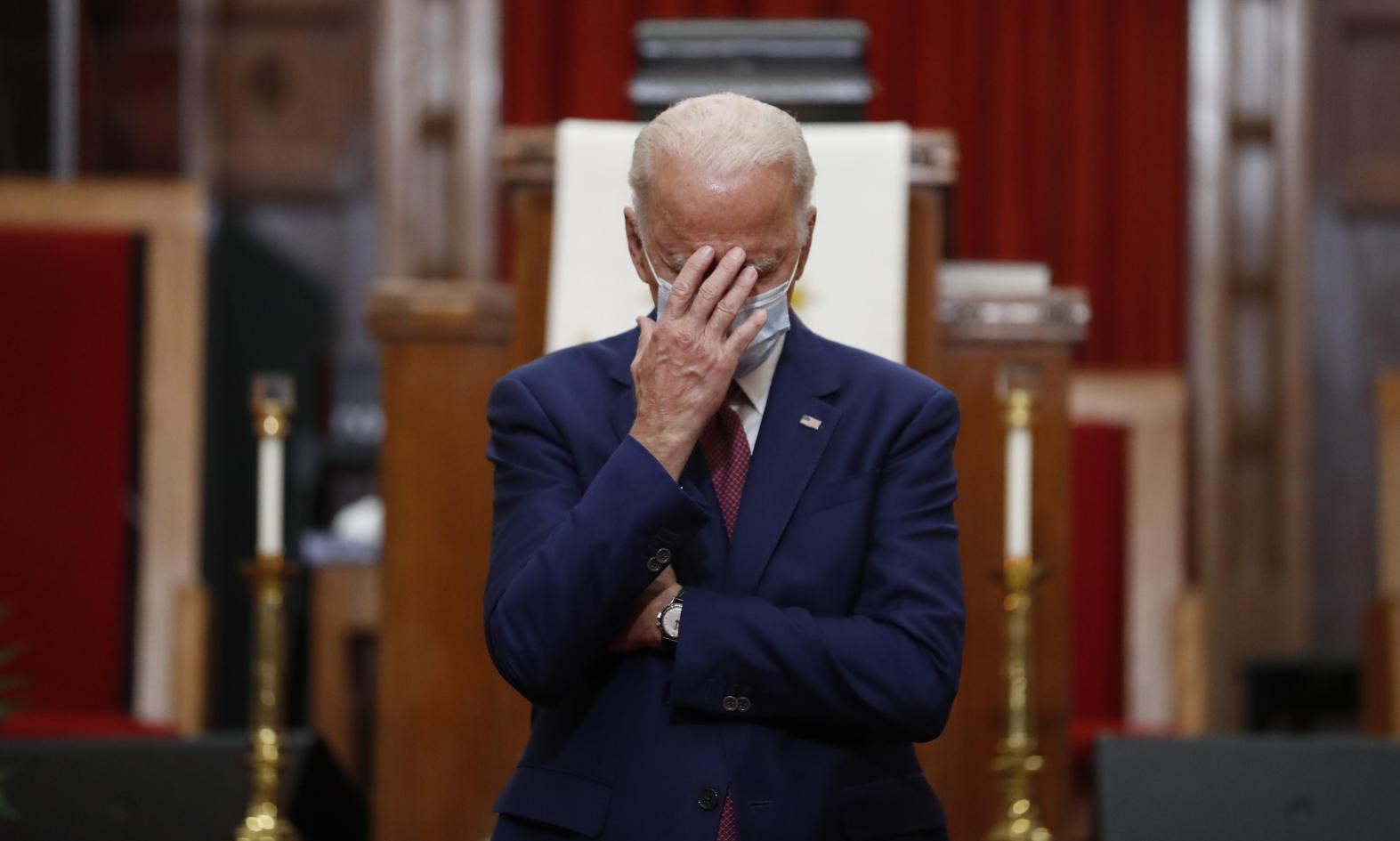Former Vice President Joe Biden made another public appearance this week by venturing out of this home and meeting with protestors concerning the killing of George Floyd by a police officer in Minneapolis. Biden visited sites in Delaware and spoke with various faith and community leaders about tense racial issues of the day.
The visits were not without controversy, however, as Biden faced questions about his signature legislation, the 1994 Biden Crime Bill, as some call it:
Rev. Shanika Perry, youth pastor of Bethel AME Church, brought up concerns young people have with Biden’s support of the 1994 crime bill.
“It’s been difficult to serve as a surrogate to them because they have great issues with the participation in that. And so they want to know how do you plan to undo the impact of the mass incarceration and the things that have resulted from that particular crime bill,” she told the former vice president.
Most of the attention and questions were cordial, but it’s an issue that still hangs around Biden’s neck and also came to light during various presidential debates last year.
One black conservative writer at USA Today, Paris Dennard, tore Biden apart on the issue, specifically citing the 1994 crime bill as expanding the “school to prison” pipeline:
The black community is well aware of the real impact of his signature legislation. The Center for American Progress sums it up: “The crime bill also expanded the school-to-prison pipeline and increased racial disparities in juvenile justice involvement by creating draconian penalties for so-called super predators — low-income children of color, especially black children, who are convicted of multiple crimes.”
Dennard is a conservative, so it’s no surprise he is criticizing President Trump’s opponent. However, the criticism of Biden’s crime bill seems to cut across political lines within the African-American community.
None of this is to say that President Trump is spared criticism from African-Americans while Biden is receiving it. However, if we jump back just a few weeks in time, which seems like an eternity at the warp speed we now live in, the President was receiving reasonably favorable marks from black voters compared to previous Republican presidents:
According to a recent NBC/Wall Street Journal poll, Trump has a 14% approval rating among black voters with every 8 out of 10 African Americans stating that they are uncomfortable with the possibility of him getting re-elected for another four years….
Despite the low numbers, this is only one half of the story. While black voters as a majority may seemingly move in one direction, there is still a stark divide between genders. In the same NBC/Wall Street Journal poll, the results show that 24% of black men approved of Trump in comparison to 6% of black women who approved of the current president.
“Trump is a genuinely ‘aspirational’ figure for some African American men — in fact, quite a few, higher than has been reported, I think,” Lawrence told Vox. “I did quite a few informal interviews before the 2016 election and [was] surprised to see how far this went — but perhaps less surprising against a female Democratic candidate.”
To others like Ugonna Eze, a conservative black law student at the University of Chicago, while his actions are mortifying, his policies aren’t.
The numbers are nothing to crow over, they’re very low, but they’re better than many Republicans have managed with black voters. The gender divide is probably the data point keeping the numbers lower than they might otherwise be if black women also gave the President a bump in numbers similar to black men.
With all the inroads Trump has made, has the last week proved destructive with the racial tensions running so high? Writing in the New York Times, Juan Williams says “black voters are coming for Trump“:
Black Americans have had enough. They have an explosive, personal investment in defeating Mr. Trump in 2020. More than 80 percent of them say Mr. Trump is a racist. For them, defeating him is the civil rights movement of 2020.
And it is not an empty threat.
If black voters returned to the polls at their 2012 levels, the Democratic presidential candidate “would win the Electoral College by 294-244,” according to an analysis by the Center for American Progress.
If Mr. Biden chooses a black woman as his running mate, as many expect him to do, it could further boost turnout.
In the reality of 2020, neither Joe Biden or Donald Trump are ideal candidates for most black voters. Biden has spent four decades in government and authored one of the most onerous pieces of criminal justice legislation in modern history, one which he is still criticized for. Biden has been unable to relate as well as he would like, and it sometimes doesn’t end well when he overplays his hand:
https://twitter.com/MaliekBlade/status/1263802788196352001
Biden’s need to collect as many African-American voters as he can almost certainly guarantee he will select a black woman for his vice president.
President Trump will continue in his own way touting the economy, which has faltered due to the Covid-19 epidemic, and now further battered by major city riots and destruction.
In the end, Biden will get a large majority of black voters, but it’s the size of the majority that matters. Trump received 8% of the black vote in 2016. If he maintains that level, it makes Biden’s path to 270 electoral voters harder.
Donate Now to Support Election Central
- Help defend independent journalism
- Directly support this website and our efforts
